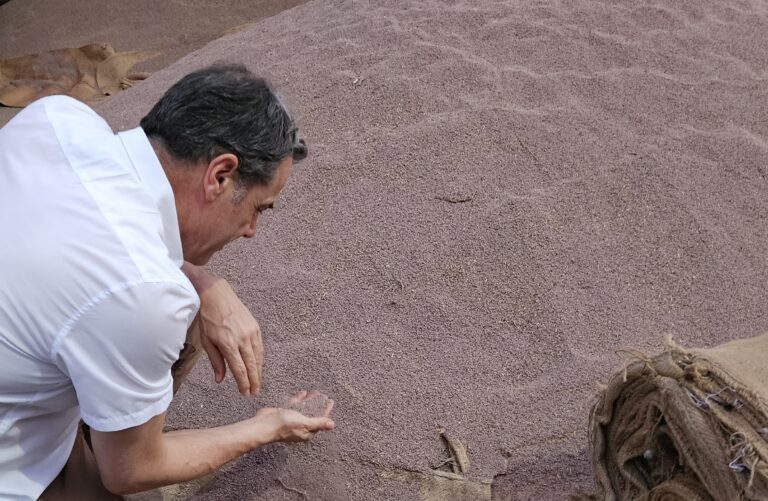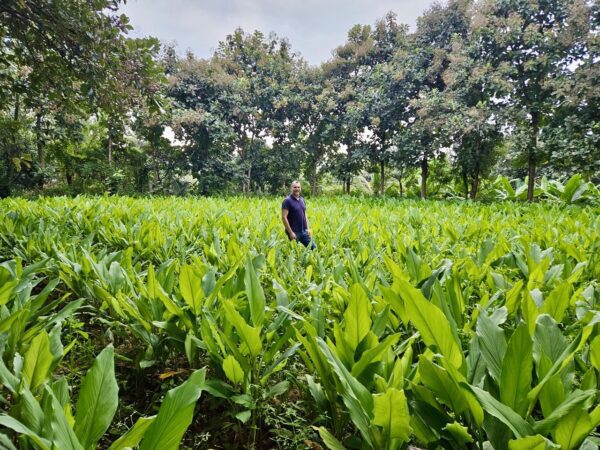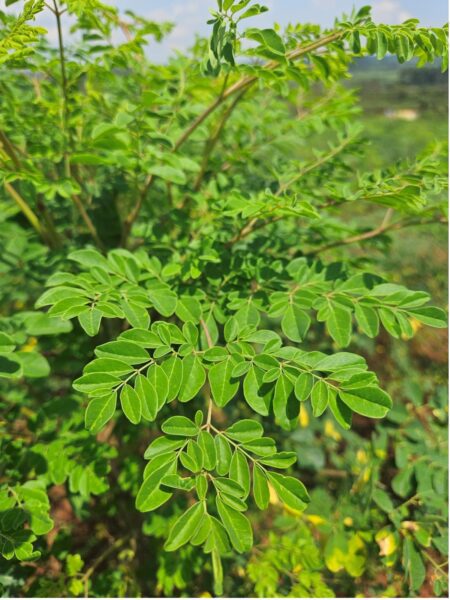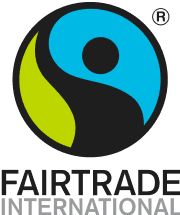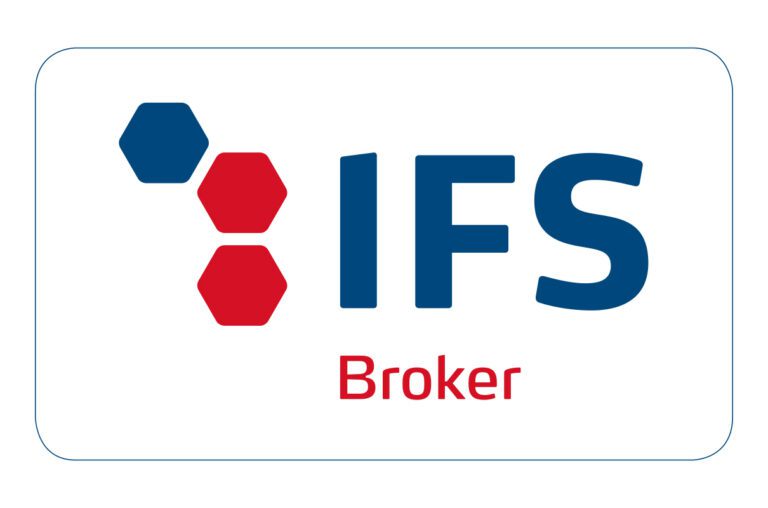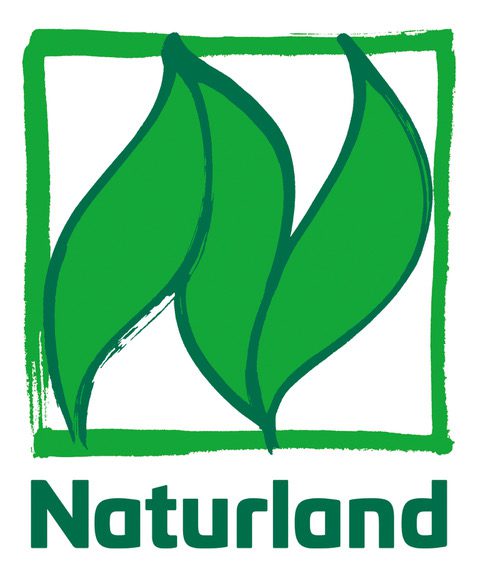As one of the largest producers of psyllium, India plays a pivotal role in supplying both organic and conventional psyllium to the world. To ensure we are partnering with the best suppliers, Abbott Blackstone International recently visited several psyllium suppliers and producers across India. This visit was essential to evaluate not only our existing producers and partners, but also potential new collaborations; ensuring that the quality and reliability of the psyllium we source meet our stringent standards.
Understanding Psyllium: The Basics
Psyllium is derived from the seeds of the Plantago Ovata plant, which thrives in specific regions of India. Two states in particular encompass vast areas dedicated to growing psyllium. This versatile plant has multiple uses, primarily for its seeds and husks. Psyllium seeds can be consumed raw for their nutritional benefits, but the husk is the most prized component. The husk is processed into psyllium husk powder, which has applications in digestive health and as a gluten substitute in baking.
The Psyllium Processing Journey
The journey from psyllium seed to husk powder is intricate and labor-intensive. It starts with cleaning the seeds to remove dirt, debris, and bugs, a process that involves several cycles. The seeds are then taken to grinding stations, where the husk is carefully separated from the seed using friction between two stones. The separated husk is further purified to achieve various grades of purity—95%, 98%, and 99%.
98% – 99% purity means that the husk basically has no more seed attached to it and is the most pure The higher the purity, the greater the husk’s swelling capacity, making it highly effective for superfood blends, digestive health products and baking applications.
Challenges in Sourcing Quality Psyllium
With numerous suppliers vying for attention through emails and online platforms, distinguishing serious offers from less reliable ones can be challenging. This is why our best practice involves onsite visits. By meeting farmers, business people and producers in person, we gain firsthand insights into their operations, facilities, and practices. This approach helps us make informed judgments about which suppliers are stable, reliable, and competent for long-term partnerships.
Key Factors in Choosing Psyllium Producers
Production Facilities: We prioritise suppliers with their own production facilities and strong connections with producer organisations. For conventional psyllium, which is traded on a state-run market, this is relatively straightforward. However, sourcing organic psyllium requires a more hands-on approach, as it is not traded on the same scale and lacks the same level of oversight.
Cleaning and Grinding Processes: The thoroughness of the cleaning process is crucial. Psyllium is an agricultural product that must be meticulously cleaned to remove all contaminants. We evaluate the number and intensity of cleaning steps, as well as the machinery used. The grinding process, which separates the husk from the seed, must be modern, efficient, and clean.
Quality of the Team: Beyond the machinery and processes, the human element is vital. We assess the competence of the quality manager, production manager, and other key staff. Their ability to answer questions confidently and manage operations efficiently indicates a well-run facility. Training, team organization, and the responsiveness of staff also play significant roles in our evaluation.
Conclusion
This visit to India reaffirmed the importance of personal interactions and onsite assessments in building reliable supply chains. By directly engaging with psyllium producers, we can ensure that the products we bring to market meet the highest standards of quality and purity. This hands-on approach not only helps us choose the best partners but also strengthens our commitment to providing our customers with the finest psyllium products available.
At Abbott Blackstone International, we are fully organically certified and our commitment to organic farming practices ensures you receive products that are free from harmful chemicals, genetically modified organisms (GMOs), and pesticides. We believe that strong, competent teams and well-organised facilities are the cornerstones of a successful and reliable supply chain. Our journey to India has equipped us with the knowledge and relationships necessary to continue delivering exceptional products to our clientele across the EU
© Copyright Abbott Blackstone International GMBH
